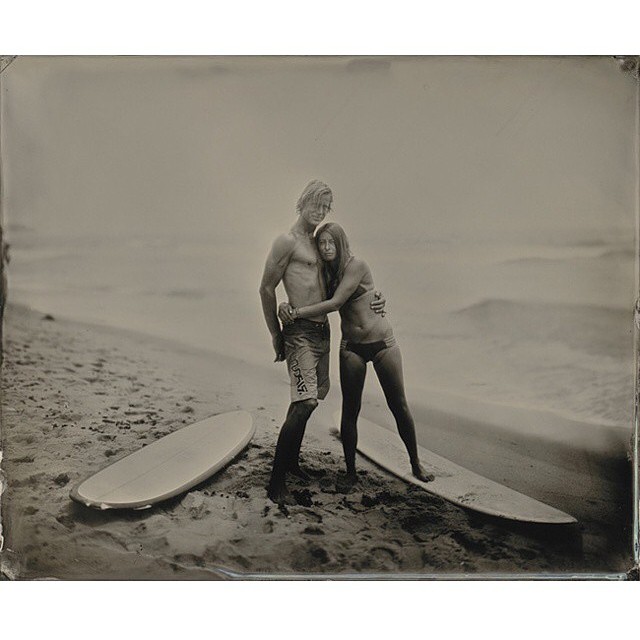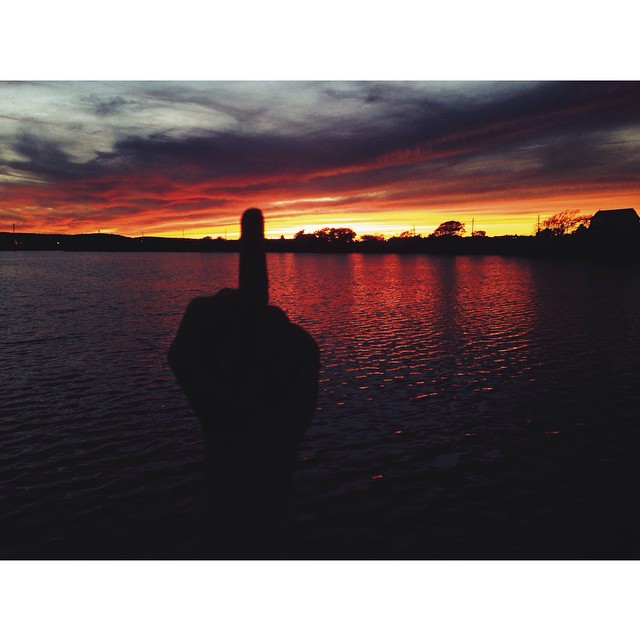METALLICA: James Hetfield on Metal and Muscle Cars
Editor’s note: this interview was part of the magazine we created in collaboration with Metallica. click here to read the whole issue. Interview: Arye Dworken
Sometimes Metallica plays smaller venues to promote an album, other times you’re at the largest venues known to man, like those at a festival. They all have their own charm. We try to connect with the audience regardless of how many people are out there. I mean, stadiums are a reality for us, but we want intimacy. Ideally, we love eye contact, and sweating on people, and it’s easier to do that in a smaller club, but we try to do it everywhere.
The Orion Festival must be a tremendous undertaking. Why would you want to get involved in that side of the business? We’ve been playing other people’s festivals for so long now. We did two, maybe three Woodstocks, and plenty of festivals in Europe. They’re a rite of passage and they’re historical. We wanted to create something like that in the States where we’re not focused on one particular fanbase. We wanted to curate some bands that are doing great stuff, so that someone could step out of their listening comfort zone and hear something new.
James playing his white Flying V guitar. Photo: Kevin Hodapp
How involved were you in the band curation? There’s a natural pecking order in our band, no matter what we’re talking about. Some voices are louder than others. But it’s our festival, so we all had an opinion.
There are some newer bands on the roster like, Death Grips. What advice would you give to young artists with one or two albums out looking to make a career out of this? You have to play from the heart, and it’s got to feel right to you. If you’re signed to a label and the label isn’t into it, then walk on. The times have changed though—we were lucky to hook up with labels back in the day when they respected the art. They didn’t get involved in artwork, in songs, in everything we did. They trusted us. But even today, and even then, you need to build up trust.
Why not put out music independently now that you have the fanbase? We want to concentrate on touring. We don’t want to waste time on the business side. We want to play everywhere in the world and we’re only [now] getting into some countries that never otherwise allowed us in.
Who stands out from the festival line-up for you? I’ve always been a Rocket From the Crypt fan and the fact that they’re back together is a very exciting thing for me, personally. Scream Dracula Scream is still one of the most solid rock records in my collection. The Deftones up on stage battling on after losing a key member. I like the Dropkick Murphys a lot.
There’s a Metallica Museum at the festival. What can you tell us about that? We’re going to have gear from all the different eras, posters, artwork…stuff people never had access to look at before and see.

2012 Group Shot. Photo: Ross Halfin
There’s also a custom car show at the festival. Where did your passion for cars come from? I read that you have three hundred cars at this point…? Oh, no. Not that many. I do have 300 guitars though. I only have 30 cars…
I was going to say that three hundred cars doesn’t make much sense. Having thirty cars is still too much. I can’t even imagine the anxiety of having to choose which car to drive out of three hundred of them.
I’m curious about the legacy of Motor City and what that means to you. When people say “Detroit,” they mean Motor City. For me, American [car manufacturing] was on top of its game in the ’30s, ’40s and ’50s, and that’s my favorite time for car collecting. All those muscle cars—the Mustangs—they’re all coming back now in fashion. I’m also fairly patriotic, and Detroit feels very much the epitome of that in the car category.
You just released your own Vans sneaker. I’ve worn Vans or as long as I can remember. I’ve probably gone through fifty pairs of white slip-ons. I think it’s pretty cool to collaborate with a company that you’ve been a fan of for a long time. I come from California and that’s what I grew up with.
You’re a rock star, but you’re also a dad. How do you deal with those two sides of yourself as a member of Metallica? It’s a weird thing to be two distinctive and separate people. And they don’t always get along, but I’m trying (laughs). Just being a dad, and being a musician—you’re on the road, you miss your family. But then you’re home and you miss the road. Those people who come out to my shows are my family, too.
The music world is not nurturing the headlining band like it used to. Bands like Metallica and Red Hot Chili Peppers are mentor bands, not fledgling acts. That’s a great point. Back in the day, headliners were raised and nurtured. The ultimate goal for a band was to be at the top of the bill. You had to play a lot, tour for years, and work really hard at it. Through that came your character, your stage presence, and learning how to be. But because record companies are the way they are, they don’t seem to want to nurture the same way. I do see it happening more in the alternative rock world, though. Way more than in the metal world. Your AC/DCs, your Metallicas are getting older. And we’re getting less and less of them.
Do you remember your first festival headlining gig? I should know this…but I don’t. Man…I do remember playing Donington Park in England as a young band and then coming back as a headliner. That was a victory of sorts. We entered another realm.
Metallica played with Slayer on the Big Four tour. I was curious if Slayer’s guitarist Jeff Hanneman’s death affected you at all? He was the same age as you. For someone in their 40s to pass away is not right. But to be a part of one of the last shows he ever played…it hits home. Jeff, for me, was a very shy guy. He reminded me a lot of me. Similar age, we went to similar high schools. We were technically rival bands in a small industry trying to out-riff each other. But yeah, having lost him so soon after we worked together was a weird moment for sure.

Robert Trujillo performing. Photo: Ross Halfin
You’re a member of the NRA. What do you think about the country’s dialogue on gun control right now? I love my guns. I love that my dad handed them down to me, and I’m taking care of them. To me, though, some of the gun laws definitely don’t make any sense, but also the Second Amendment is very important to me. Somewhere in the middle lies the truth. Both sides are operating on a fear base. As an NRA member, I don’t think we need to be afraid that if we compromise on some things, [they] are going to change so much. I don’t want to make it easier for someone to have an assault weapon, but I also want to be able to protect my family.
Before you ever put out the Black Album, was there a sense that it was going to be as big as it was? I think that any band who doesn’t think their next record isn’t the next big thing has lost the plot. For us, we’ve been extremely fortunate and we’ve always put our best foot forward. Whether it was [producer] Bob Rock’s involvement, the album cover, the time when people were really into rock…whatever it was, we were on tour for three years promoting that record. It was a combination of hard work, a good album, and getting in people’s faces about it.
What advice can you give a young metal head? If you want to make music, get together with some people you get along with and make some music. Make sure they’re like-minded people and share the same passion in their heart. Metal, for a high schooler, may not always be the cool thing but if it speaks to you, then stay true to it.
You’ve always been very personal about your life in the lyrics; whether it’s alcoholism, or the loss of your mother. Do you ever detach from the lyrics and try to narrate? I think if they’re your words, and they come from you about you, people will identify with them more than they would if I wrote a story about someone else. Making something up is not as interesting to me. I’m interested in forgiveness, sin, pain, things that have happened in my life. If I’m doing that, then I’m doing it right.
I should say before we go that as a child the video for “Enter Sandman” always frightened me. Then I know I’ve done my job (laughs).




